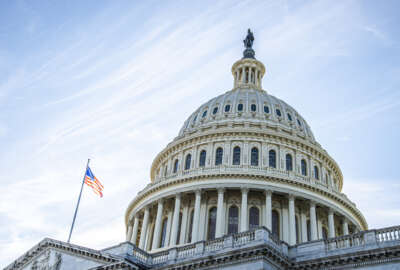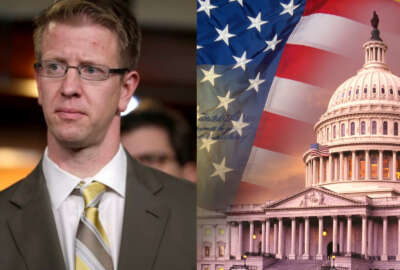Unions gather troops for battle over pay, sequestration
AFGE and NTEU -- the two biggest labor unions in the federal government -- bring members to Washington to persuade Republican lawmakers to support a pay raise and...
The American Federation of Government Employees expects 1,000 members, a record-breaking amount, to descend on Washington next week to shake hands with lawmakers. But its agenda — increasing pay and benefits, repealing sequestration—will be hard for the GOP majority to stomach.
“The Republican majority has stepped forward and said, very clearly, they want to demonstrate their ability to government and AFGE is ready, willing and able to work with them,” AFGE National President J. David Cox said.
The union is working hard to build relationships with newly elected Republicans in particular.

“Many of these folks say government is bad, yet when they have a military installation that employs 6,000 to 10,000 people or more in their congressional district — besides all the goods and services that place buys and does for the local economy — I’ve never seen any of them step up and say, ‘Get rid of my VA medical center, my DoD facility,'” he said.
AFGE could be a force to reckon with at election time, given that its 650,000 members are spread throughout the nation. Cox already has met with several Republican lawmakers, he said. AFGE has invited Rep. Rob Wittman (R- Va.), chairman of the House Armed Services Committee panel that oversees the defense civilian workforce, to speak at its conference.
“We’ve had strong indications that a fair number of Republicans are listening to us,” he said. “I believe many of them are interested in how to do things better and provide good government services.”
As an example, he said, the new chairman of the House Oversight and Government Reform Committee, Rep. Jason Chaffetz (R-Utah), had led a push to reform the pay system for border patrol agents, whom AFGE represents.
The AFGE legislative conference follows a similar gathering this week hosted by the National Treasury Employees Union. It chalked up a victory when Chaffetz became the first Republican leader of that committee in a dozen years to address NTEU members. He pledged to support a federal pay raise. In return, he asked the union to back legislation that would make it easier to fire or discipline bad actors within the federal workforce.
When asked if AFGE would go along with the effort, Cox was noncommittal.
“I don’t want bad people working for the federal government,” he said, adding that processes exist now to address problems. “Certainly we believe in due process.”
He said he has discussed the issue with Chaffetz. who agreed that the number of poor performers in the government is very small. Cox said he challenged the congressman to find ways to “reward the 99 percent of people who do excellent jobs every day for government services.”
Unions’ priorities clash with budget hawks’ desire for smaller government
Yet the items on the unions’ wish lists don’t come cheap. Endorsing them would put some Republicans who say they want to shrink the government in a bind. Both AFGE and NTEU are pressing for a federal pay raise that is greater than the 1.3 percent that President Barack Obama proposed in his fiscal 2016 budget. They want Congress to pass a law giving employees six weeks of paid parental leave. And both want to get rid of sequestration, the across-the-board cuts that will resume later this year if Congress fails to act.
In addition, the unions expect they’ll have to devote a lot of time to beating back bills that would require federal employees to pay a greater share of their retirement costs or otherwise cut into their paychecks.
“New hires, for two years in a row, got the crap beat out of them with increased contributions [to their retirement],” said Cox. “The little bit of defined benefit plan federal employees have is very minimal. It’s completely funded. So we’ll be fighting viciously any changes there, or any move to cost-shifting in the Federal Employee Health Benefit Program.”
AFGE also will be watching for legislative amendments that would cut the federal workforce or its resources in order to pay for Republican priorities like the Keystone XL Pipeline or offshore drilling, Cox said.
RELATED STORIES:
Chaffetz supports a federal pay raise but wants something in return
IRS workers hope to sway Congress to reverse budget cuts
Five things every federal employee should know about the Obama budget
Copyright © 2024 Federal News Network. All rights reserved. This website is not intended for users located within the European Economic Area.





